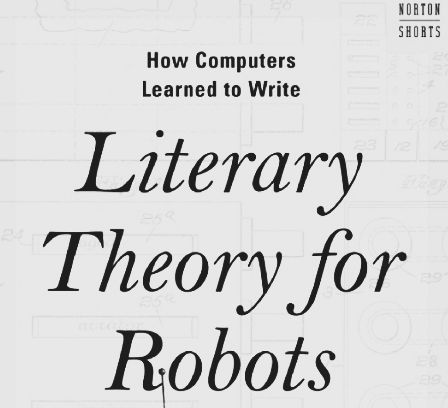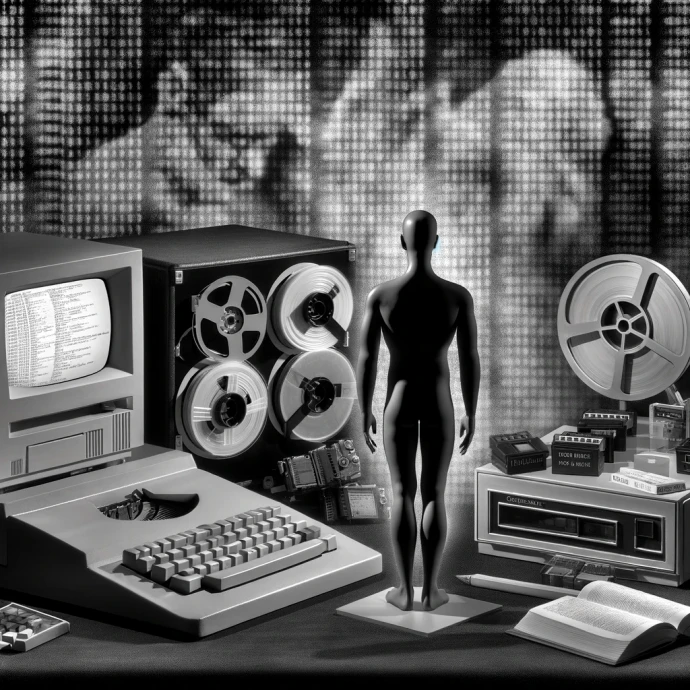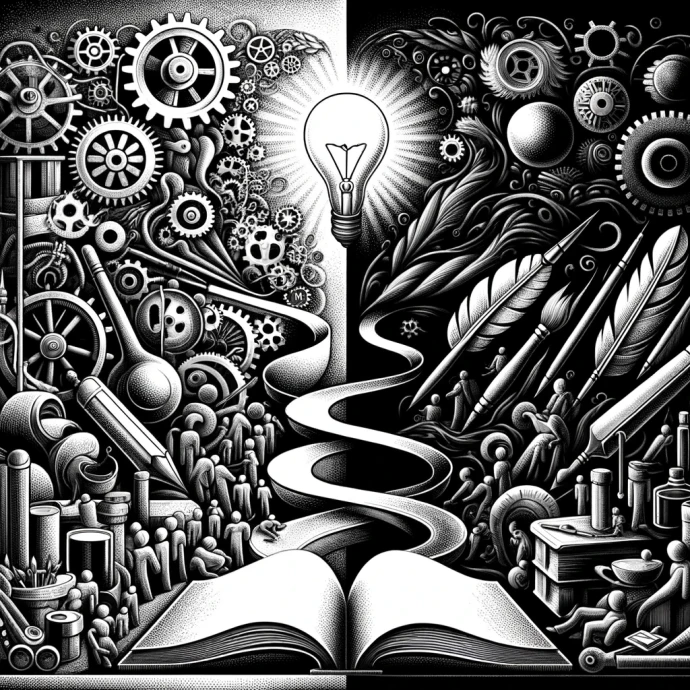How Robots Learned to Write So Well

In the domain of AI and writing, Dennis Yi Tenen's «Scholarly Hypothesis for Robots» arises as a historic investigation. Tenen, with his interesting mix of skills, as a previous programmer turned writing teacher, dives into the intricate connection between human innovativeness and AI. His book isn't simply an academic talk but a story that winds around together history, innovation, and scholarly evaluation, testing our view of artificial intelligence's capacities in the realm of composing.
A Small Slip-up with Significant Ramifications
Tenen's story starts with a tale that could appear to be insignificant from the get-go — a typographical blunder. This minor slip, confounding «Reflections» with «Intercessions,» fills in as a strong outline of simulated intelligence's constraints and the indispensable worth of human oversight in getting it and deciphering language. From this perspective, Tenen makes way for a more profound examination concerning the pith of insight, both fake and human.
The Human Center of Computerized Reasoning

Crossing Over Universes: From Programming to Writing
Tenen's excursion from the tech business to the scholarly community isn't simply a professional change but a combination of points of view that improves his investigation. His experience permits him to demystify artificial intelligence, introducing it as an instrument that, while progressively refined, still works within the limits set by human ideas and imagination. The book's compact organization highlights Tenen's faith in openness and the significance of drawing in with complex thoughts at a human scale.
The Scope of Information
«Information progresses on a reach,» Tenen creates, including the improvement of customized transmissions as a portrayal for reproduced knowledge improvement. This assessment uncovers understanding into how we have commonly integrated advancement into our lives, consistently demystifying its capabilities and planning it into the construction keeping the framework intact. Tenen battles that understanding man-made brainpower requires seeing the agreeable human effort behind it, and testing the possibility of machines as free trained professionals.
Language, Portrayal, and Understanding
At the focal point of Tenen's debate is the force of language and deliberate story. By taking a gander at how we look at man-made cognizance, Tenen welcomes us to reconsider our suspicions about machines' scholarly capacities. He centers around the importance of seeing the pragmatic parts of man-made information and the human-like characteristics we credit to them, engaging a more nuanced impression of improvement's work in our lives.
The Preliminary of Outside Support
Tenen's assessment contacts the deterrents of reproduced information made messages, featuring the essential control of human relationship in figuring out language. He depicts this through models going from dated «letter wizardry» to present day chatbots, highlighting the opening between etymological rightness and basic correspondence. This capability is fundamental in esteeming the significance of human creative mind and the consistent getting a handle on that man-made knowledge, for all of its advances, can't rehash.
The Fate of Work and Inventiveness

Mechanization and Its Discontents
While recognizing the troublesome capability of artificial intelligence in the domain of information work, Tenen offers a viewpoint that offsets alert with hopefulness. He recommends that computerization, by bringing boundaries down to sections and democratizing admittance to data, can likewise open up new roads for imaginative and scholarly commitment. This view provokes us to reexamine the worth of manual assignments and the open doors for human imagination in an undeniably mechanized world.
Obligation and Organization in the Time of AI
Tenen closes with a source of inspiration, helping us to remember the cultural obligation that goes with innovative headway. He contends that the genuine risk lies not in simulated intelligence itself but rather in our aggregate inability to consider its makers responsible. By pushing for a more capable and moral way to deal with innovation improvement, Tenen highlights the significance of human organization in molding a future where simulated intelligence fills in as a supplement to, as opposed to a substitution for, human imagination and knowledge.
Determination: A Reflection on AI and Humankind

«Dennis Yi Tenen's „Scholarly Hypothesis for Robots“ is in excess of a book; it's a statement for the smart combination of man-made intelligence into our social and scholarly scenes. By mixing scholarly scrutinize with mechanical understanding, Tenen offers a reflection on the getting through force of human knowledge in the time of counterfeit personalities. His work moves us to embrace the intricacies of this relationship, cultivating a future where innovation intensifies, as opposed to decreases, our mankind.

Become a part of digital history





Comments about How Robots Learned to Write So Well